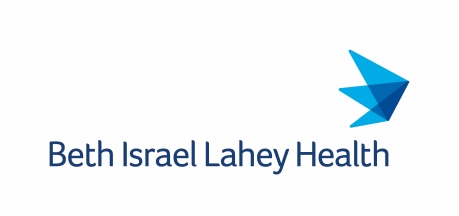Newswise — Welcome to the Heart Health Month Special Edition of Beth Israel Deaconess Medical Center’s (BIDMC) Research & Health News Digest. February is Heart Health Month. This special edition includes consumer-friendly news and research briefs specifically tailored to Heart Health Month:
- Panic attack vs. heart attack: How to tell the difference
- Ensuring a heart-healthy pregnancy
- Changing your exercise routine
- Can getting a dog help you live longer?
- Protect your heart with the top-ranked Mediterranean Diet
- Choices of the heart: Healthy foods more important than type of diet to reduce heart disease risk
- Researchers develop novel imaging approach with potential to identify patients with coronary artery disease without exposure to radiation or administration of drugs
- Study finds key metabolic changes in patients with chemotherapy-associated cardiotoxicity
If any of these briefs pique your interest and you’d like to speak with one of our experts, please contact us at [email protected] or at 617-667-7300. You can also reach the BIDMC communications team member on call through the BIDMC page operator at (617) 667-4700 by asking for pager ID #33880.
The BIDMC Media Relations Team
BIDMC Research & Health News Digest: Heart Health Month Special Edition
Panic attack vs. heart attack: How to tell the difference
Patricia Tung, MD, a cardiologist at BIDMC, outlines the key differences between a panic attack and a heart attack.
Ensuring a heart-healthy pregnancy
Loryn Feinberg, MD, Director of Women's Cardiovascular Health at BIDMC, discusses how a highly specialized treatment approach is important for women with underlying cardiovascular issues who want to become pregnant as well as for women who develop cardiac problems during pregnancy.
Changing your exercise routine
Jeremy Robbins, MD, a cardiologist at BIDMC, discusses how altering the intensity of your workout or trying a new activity may benefit your cardiovascular and mental health.
Can getting a dog help you live longer?
Much has been written about the effect of dog ownership on mental well-being, but can it impact your physical health as well? Dhruv S. Kazi, MD, MSc, MS, Associate Director of the Smith Center for Outcomes Research in Cardiology and Director of the Cardiac Critical Care Unit at BIDMC, weighed in on the conversation in an editorial accompanying two studies on this topic in Circulation: Cardiovascular Quality and Outcomes.
Protect your heart with the top-ranked Mediterranean diet
Murray Mittleman, MD, DrPH, Director of Cardiovascular Epidemiological Research at BIDMC, shares how the Mediterranean diet protects the heart, making it to the top of the U.S. News & World Report’s best diet ranking in 2019.
https://www.bidmc.org/about-bidmc/wellness-insights/heart-health/2019/04/mediterranean-diet-recipes
Choices of the heart: Healthy foods more important than type of diet to reduce heart disease risk
In a study published in the International Journal of Cardiology, Stephen Juraschek, MD, PhD, Assistant Professor of Medicine at BIDMC, and colleagues examined the effects of three healthy diets emphasizing different macronutrients – carbohydrates, proteins, or unsaturated fats – on a biomarker that directly reflects heart injury. Using highly specific tests, the team found that all three diets reduced heart cell damage and inflammation, consistent with improved heart health.
Researchers develop novel imaging approach with potential to identify patients with coronary artery disease without exposure to radiation or administration of drugs
Reza Nezafat, PhD, Scientific Director of the Cardiovascular Magnetic Resonance Center at BIDMC, and colleagues developed an imaging technique that allows physicians to diagnose coronary artery disease without the risk of a contrast agent. The findings, published in JACC: Cardiovascular Imaging, offer a potential alternative to contrast dye, since recent evidence suggests risky agents like gadolinium can remain in the body for years.
Study finds key metabolic changes in patients with chemotherapy-associated cardiotoxicity
Researchers led by Aarti Asnani, MD, Director of the Cardio-Oncology Program at BIDMC, investigated whether early changes in energy-related metabolites in the blood – measured shortly after chemotherapy – could be used to identify patients who developed heart toxicity at a later time. The study, published in the Journal of Cardiovascular Translational Research, found that metabolites associated with the mitochondria changed differently in patients who later developed heart dysfunction compared to those who did not.
https://www.bidmc.org/about-bidmc/news/2019/07/metabolic-changes-in-patients-with-chemotherapy
